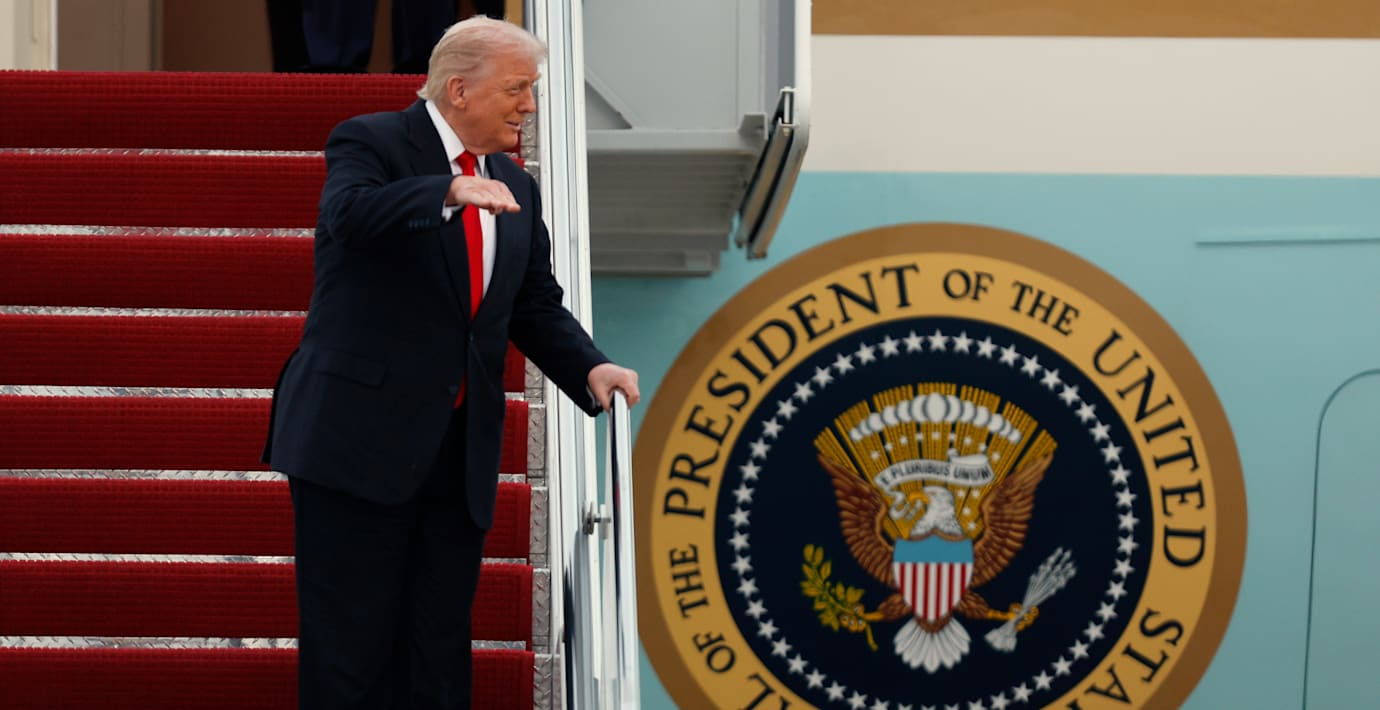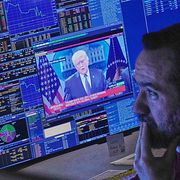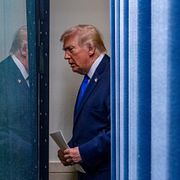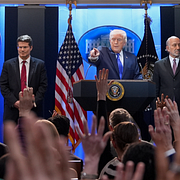
Trumps tullutdelning sågas: ”Fruktansvärt dålig idé”
Donald Trump föreslog i helgen att alla amerikaner – med undantag för höginkomsttagare – ska få en ”tullutdelning” på minst 2 000 dollar. Utspelet oroar ekonomer som menar att liknande utbetalningar under pandemin kan ha bidragit till inflationsrallyt i USA under 2021 och 2022.
– Det är en fruktansvärt dålig idé. Tanken att vi ska ta en inkomstkälla och använda den för att dela ut pengar, samtidigt som vi skuldsätter oss allt djupare på federal nivå, är djupt oansvarig, säger nationalekonomen Paul Krugman till Bloomberg på måndagen.
Trump skrev om förslaget på nytt under måndagen. Presidenten menar att intäkterna från tullarna räcker till både utbetalningar och till en ”väsentlig” avbetalning på statsskulden.
bakgrund
Helikopterpengar
Wikipedia (en)
Helicopter money is a proposed monetary policy for inflation targeting, sometimes suggested as an alternative to quantitative easing (QE) when the economy is in a liquidity trap (when interest rates near zero and the economy remains in recession). Although the original idea of helicopter money describes central banks making payments directly to individuals, economists have used the term "helicopter money" to refer to a wide range of different policy ideas, including the "permanent" monetization of budget deficits – with the additional element of attempting to shock beliefs about future inflation or nominal GDP growth, in order to change expectations. A second set of policies, closer to the original description of helicopter money, and more innovative in the context of monetary history, involves the central bank making direct transfers to the private sector financed with base money, without the direct involvement of fiscal authorities. This has also been called a citizens' dividend or a distribution of future seigniorage.
The name "helicopter money" was first coined by Milton Friedman in 1969, when he wrote a parable about dropping money from a helicopter to illustrate the effects of monetary expansion. The concept was revived by economists as a monetary policy proposal in the early 2000s following Japan's Lost Decade. In November 2002, Ben Bernanke, then Federal Reserve Board governor, and later chairman suggested that helicopter money could always be used to prevent deflation.
A monetary policy that involves helicopter money requires that central banks operate with negative equity. This touches on an old question in economics on whether money should always be fully backed by segregated assets (gold, loans) or whether lower levels of asset backing are warranted to counter deflationary pressures. This question is again relevant due to the negative side effects of low interest rate policies as well as the development of central bank digital currency.
Omni är politiskt obundna och oberoende. Vi strävar efter att ge fler perspektiv på nyheterna. Har du frågor eller synpunkter kring vår rapportering? Kontakta redaktionen



